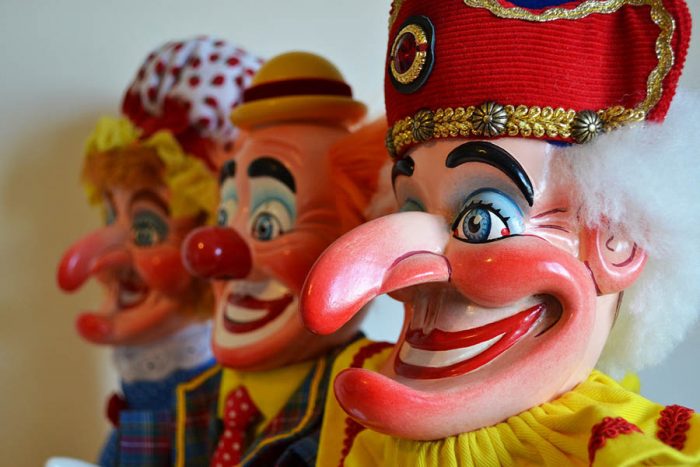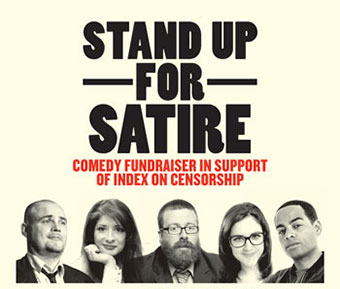This is no joke
Humour and politics are always a dangerous mix in authoritarian states and no more so than in China. A recent high-profile event that involved the punishment of popular stand-up comedian Li Haoshi (above) and XiaoGuo Comedy, China’s largest talk show company and who had hired Li along with many other well-known stand-up comedians, proves that delivering a wrong punchline can have dire consequences: XiaoGuo has been fined colossal amounts of money (13.35 million yuan; $1.8 million) and Li possibly faces years in jail.
Performing under the English stage name House on 13 May, Li quipped that he adopted two stray dogs that turned out to be extremely energetic and capable. Once set free in the mountains, the dogs chased a squirrel like a missile launched into the air. Li then said he was so impressed that eight words came into his mind immediately: 作风优良, 能打胜仗, literally meaning they “can defeat enemies while maintaining excellent discipline and moral conduct”, which is a typical slogan to praise China’s People’s Liberation Army in the Xi Jinping era. The punchline served its purpose and caused roaring laughter. However, some audiences felt very uncomfortable with Li’s insult to the PLA. His joke was recorded by one of the disgruntled audience members and posted on Sina Weibo, the most popular Chinese social media platform. The disclosed video soon sparked public outcry among netizens against Li and his company.
People accused Li of intentionally tarnishing the image of military soldiers and mocking Xi’s political slogan. They believe Li’s punchline alluded to a scene in the Red Classic propaganda film produced in 1956, Battle on Shanggan Mountain, in which People’s Voluntary Army soldiers in the Korean War chased squirrels for fun in between battles. Moreover, the eight words he used to praise the stray dogs are the exact words Chinese President Xi Jinping said at the plenary meeting of the PLA delegation in 2013, which has now become a political slogan of the PLA.
As anger spiralled online, Xinhua News Agency and People’s Daily, two of the biggest state media outlets, issued online commentaries, criticising the comedian and reiterating that insulting the PLA is intolerable. The China Association of Performing Arts called for its members to boycott Li, according to the Management Measures for the Self-Disciplines of Arts in the Performing Arts Industry. Though Li and XiaoGuo both quickly apologised on social media, their apologies gained no forgiveness from either the public or the government. On top of the hefty fine, XiaoGuo was banned from future performances. Li’s Weibo account was banned. The Chaoyang Branch of the Beijing Municipal Public Security filed a case to investigate the comedian due to what they perceived as the very harmful social impact that the incident caused. Li is likely to be accused of violating the Law on the Protection of the Status and Rights and Interests of Military Personnel of China, issued in 2021, and likely to face criminal prosecution.
Operating under strong censorship in China’s cultural industries, performing arts that rely on humour have always walked a fine line between pleasing both audiences and regulatory bodies. While open political criticism on stage has never been possible, traditional two-people comic talk shows called “cross-talk”, alongside more conventional comic skits, became popular amongst Chinese audiences on tv and on radio. From the 1980s to early 2000s they managed to carve out space to poke fun at social ills, even on the stage of the annual Spring Festival Gala live broadcast by the China Central Television, which has millions of viewers. For example, a cross-talk show called The Thief PTY Ltd satirised the prevalent social phenomenon of bureaucracy and nepotism, while star comedian Zhao Benshan’s comic skit Uncle Niu’s Promotion aired at the 1995 Spring Festival Gala and lampooned the social malaise of civil servants feasting on public funds. In this particular skit, a villager was “promoted” to director of a public service department due to his ability to hold down alcohol. These critical comedy works became classics for millions of Chinese audiences.
But the small space for fun has been squeezed in the last decade under Xi, as artists are expected to promote “positive energy” and morally educate the public. This has directly caused the decline in popularity of cross-talk and comic skits, as well as the CCTV Spring Festival Gala iself.
It was against this backdrop that stand-up comedy shows sprang up and gained popularity, especially in metropolitan cities such as Beijing and Shanghai and especially amongst millennials.
Watching stand-up comedy has become a popular middle-class leisure activity in China. In 2021 alone, China had 18,500 stand-up comedy shows and the box office income had reached 391 million yuan ($55.4 million). This represents phenomenal growth for a burgeoning industry, considering live stand-up comedy only really started to emerge in China around 2014. In the years that have followed open mics and stand-up comedy competitions have gained huge traction offline and also on. Take the show Rock & Roast as an example. In Rock & Roast, amateur comics compete against each other to become "talk king". An average of 70 million viewers watched the two-hour programme in 2019, up from 50 million in 2017, and its Weibo page attracted up to six billion views by 2021.
Scholars Dan Chen and Gengsong Gao critically analysed the popularity of stand-up comedy and its politics in China in an article published in Critical Discourse Studies in 2021. They argue that stand-up comedies carefully transgressed and expanded the boundary of state rhetoric by providing alternative views on social issues of common concern in a subtle way. Their popularity for both performers and viewers was partly tied to their ability to be an arena in which people could speak more freely.
Sadly the incident of Li Haoshi shows the limitation of such “transgressive rhetoric”, as well as the shrinking of the tiny areas of freedom for making jokes in China today. With the tightening control and regulation of artistic creation and of artists, more and more red lines have been drawn. Under Xi, Party-endorsed heroes, role models and official narratives of revolutionary events have become much more sensitive topics than they used to be. Ultimately they cannot be easily mocked or deconstructed. People who cross the line see their works or speeches labelled as “historical nihilism” and get punished.
The Li incident is not the first time comedians in China’s rising stand-up scene have found themselves in hot water. In 2019 former Chinese men’s football team captain Fan Zhiyi mocked the disappointing performance of the Chinese men's basketball team in the 2019 Basketball World Cup in an episode in Rock & Roast Season Five and was criticised by Xinhua News Agency for “hurting the feelings of basketball fans”. A month later Beijing authorities fined the organisers of a small Beijing show 50,000 yuan, (around $7,700 at the time) for “using vulgar terms in its performance which violate social morality”.
But the punishment of Li and XiaoGuo represents an escalation and will definitely impact China’s burgeoning stand-up comedy industry and the boundaries of making jokes both on stage and off. Whether Li’s case will be judged within the legal framework is still unknown as the government seems to be weighing up the pros and cons of penalties to be meted out. How Li will be punished is therefore particularly noteworthy for those who care about freedom of speech, the rule of law and the comedy landscape in China.



